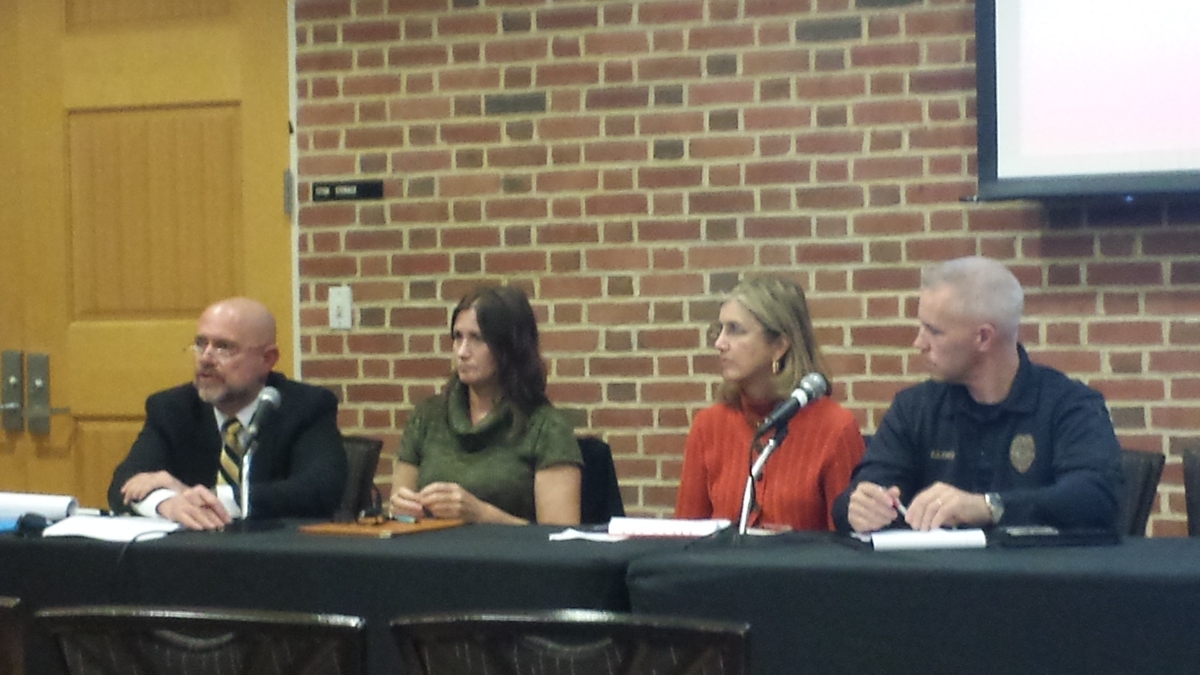The University Senate will vote on proposed changes to sexual assault prevention policies at its April 19 meeting after the Senate Executive Committee voted to advance the bill on Friday.
The sexual assault prevention bill — which has been in the works since the creation of the Sexual Assault Prevention Task Force in October — calls for more uniform and mandatory sexual assault and bystander intervention training. The university currently administers some programs on these topics, including required online compliance training for faculty, staff and students, but there is no coordinated comprehensive sexual assault prevention plan in place, said Steve Petkas, task force chair.
“Right now I wouldn’t think the entire campus is intolerant of sexual assault,” Petkas said. “Some aspects of the campus are very mindful of it, many aspects are not all that mindful of it, and we want to shift to where multiple messages come from the environment, programs and peers that represents the campus’ intolerance of sexual assault.”
[READ MORE: A University Senate task force wants to expand sexual assault training programs]
The bill would mandate a handful of sexual misconduct prevention activities for undergraduate students, Petkas said.
First year and transfer students would be required to complete face-to-face sexual misconduct training by April of their first year at this university in addition to online sexual misconduct compliance training. The bill also calls for in-person presentations at all new student orientations and requires new students to complete online alcohol safety training.
Second- and third-year students would have to complete an online training program as well. Fourth-year students will have the option to participate in more sexual assault prevention activities, but it would not be mandatory.
Graduate student programming would include online sexual misconduct compliance training, presentations at orientations and sexual assault prevention training for graduate assistants.
The task force recommends these programs be enforced through registration blocks, but senators discussed during the committee meeting that might be difficult to implement, since each block would have to be individually removed after each student completed the required programs. It could take three to five years for the registration blocks to be fully applied, said University Senate Chair Jordan Goodman.
The task force also recommends the president and at least one other student leader of every student organization be required to participate in an online sexual assault prevention training program as a condition for registering as a recognized student organization, Petkas said. The plan calls for the creation of a central website that would house all resources, programs and information available on how to prevent sexual assault in one place.
“This was something I started to focus on over a year ago, and to see it come to fruition and how it will impact this university is just so great,” said undergraduate Senator J.T. Stanley, who is also part of the committee.
The committee also unanimously approved a request to extend the deadline of the Student Conduct Committee’s revisions to the Code of Student Conduct.
The revisions were originally due March 31, but the new deadline is October 13.
“The committee opted to write a new Code, since the language of the current Code is so legalistic and isn’t easily understood by students and since the current Code has many structural issues,” Ed Kenny, chair of the Student Conduct Committee, wrote in an email. “Re-writing the Code is a larger job, so it has naturally taken more time, and the committee needs additional time to be able to complete its work.”
The SCC has started to re-write the code, Kenny said, and the committee is considering revisions to the standard of evidence and the role of attorneys in the process, as well as to update the list of prohibited conduct.
[READ MORE: University of Maryland students express concern with sexual harassment policy]
As part of the extension, the SCC has added two more meetings this semester and will meet with the Office of General Counsel as well, Senate Director Reka Montfort said at the meeting.
Director of Student Conduct Andrea Goodwin said this is the first time the code has been up for a complete revision for as long as she has been at this university, which has been more than 20 years.
“Often students don’t pick up the code and read it in their spare time, because of the complicated language, unless they get a violation,” said Goodwin, the sponsor of the bill. “We want to make sure it’s easy to read and understandable to students so they read it before getting a violation, and I think this version is going to do exactly that.”



